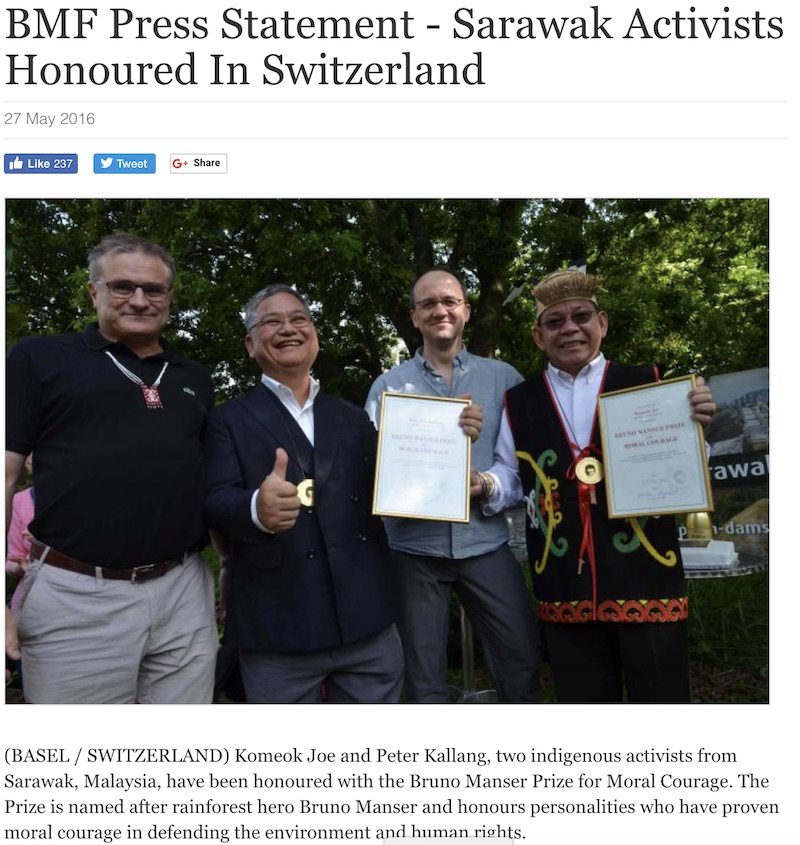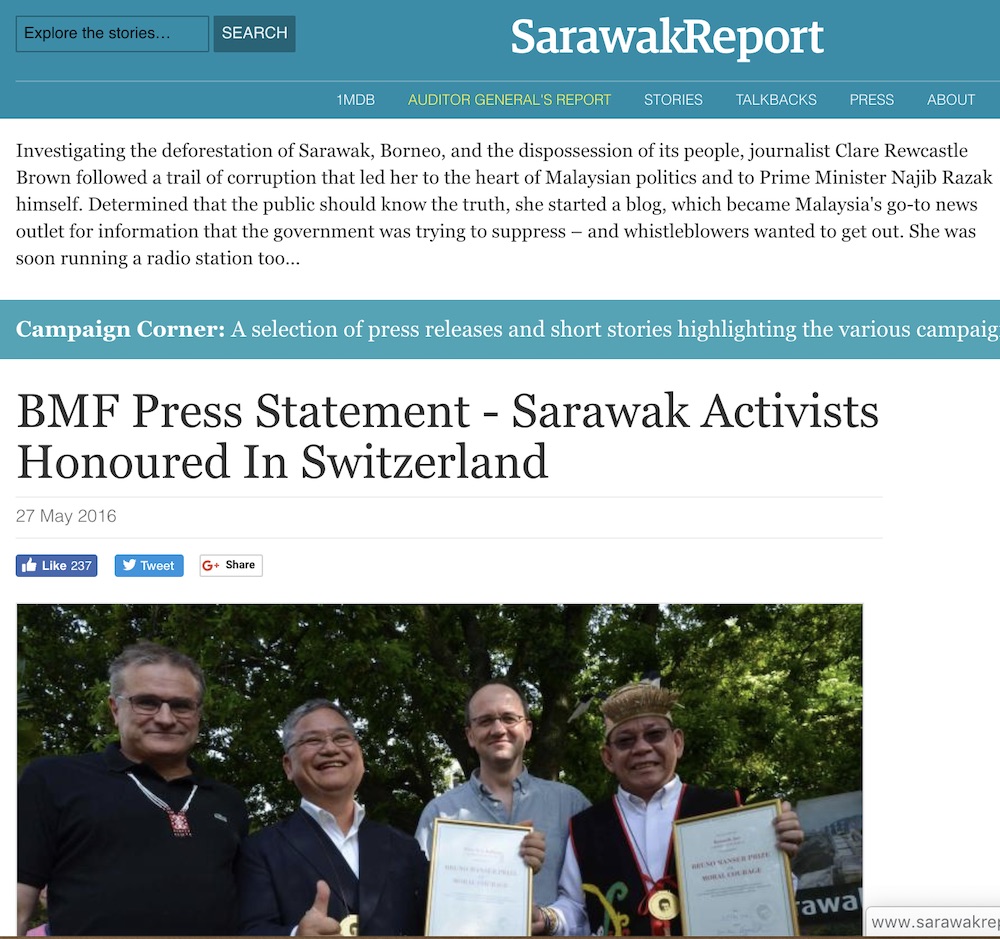Sarawak Report’s anti-deforestation campaign finally pays off

For years Sarawak Report and the Bruno Manser Fund have been campaigning against deforestation in Malaysia and one target of the campaign is to get Europe to ban the import and usage of Malaysian palm oil. That campaign has now paid off and millions of Malaysians dependent upon the palm oil industry are going to face a bleak future ahead of them.
THE CORRIDORS OF POWER
Raja Petra Kamarudin
********************************************************

Norway to Ban Deforestation-Linked Palm Oil Biofuels in Historic Vote
The Norwegian parliament voted this week to make Norway the world’s first country to bar its biofuel industry from importing deforestation-linked palm oil starting in 2020, The Independent reported.
Environmentalists celebrated the move as a victory for rainforests, the climate and endangered species such as orangutans that have lost their habitats due to palm oil production in Indonesia and Malaysia. It also sets a major precedent for other nations.
“The Norwegian parliament’s decision sets an important example to other countries and underlines the need for a serious reform of the world’s palm oil industry,” said Nils Hermann Ranum of the Rainforest Foundation Norway (RFN) in a press release emailed to EcoWatch.
A 2017 report commissioned by RFN found that palm oil-based biofuel is worse for the climate than fossil fuels. The report, authored by low carbon fuels policy expert Chris Malins, concludes: “There is a large body of evidence that because of indirect land use change, palm oil biodiesel is worse for the climate than the fossil fuel it replaces—perhaps several times worse.”

Norway’s consumption of palm oil-based fuels hit all-time high in 2017, according to RFN. The country consumed 317 million liters of palm-oil based biodiesel, representing 10 per cent of its overall diesel consumption, the group said.
Last year, a majority of the Norwegian parliament actually voted to stop the government from purchasing palm oil-based fuels.
However, the parliamentary decision was never fully implemented, as the government opted instead to rely on voluntary measures, The Independent noted.
The vote that passed Monday is thought to be stronger and was supported by the majority of the government, according to The Independent. The resolution calls on the government “to formulate a comprehensive proposal for policies and taxes in the biofuels policy in order to exclude biofuels with high deforestation risk.”

Clare Rewcastle Brown of Sarawak Report and the Bruno Manser Fund led a successful campaign that will now see palm oil banned in some European countries
The Indonesian government as well the country’s palm oil producers have already expressed concern about Norway’s vote this week.
“Although the impact will not be significant (on our exports), that will become a bad example for other countries,” Fadhil Hasan, the director for foreign affairs of the Indonesian Palm Oil Producers Association, told The Straits Times.
Oke Nurwan, director-general for foreign trade in Indonesia’s Trade Ministry, worried that other countries may follow in Norway’s footsteps.
“The policy will certainly amplify the negative impression about palm oil products,” he told the publication.

